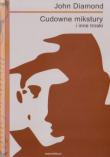
|
« Outlook on life With Our Backs Towards Agnostics Philosophers have been tackling the question of God's existence or non-existence for centuries, invariably to no avail. It became painfully obvious to many great thinkers that it was virtually impossible to construct a strict proof of God's existence while maintaining the rigors of standard epistemology. Frequent attempts to disprove divine presence have been equally frustrating. Given this history, it is nothing short of amazing that in very many instances of public discourse in the United States God's existence is simply assumed as confirmed knowledge. In a country strongly controlled by Christian fundamentalists atheism is not only a bad word, but also „non-scientific" or „naďve" while agnostics are often viewed as weird, confused, hesitant people who do not know what they believe. When I moved from St. Louis to Fort Wayne in Indiana, my new neighbors across the street needed only one day to ask me the all important question: „have you found a church a yet?". They suggested therefore that (a) I had to be a theist, and (b) that living without being a member of some organized religion was virtually impossible. Thus they totally ignored the musings, doubts and fretful ruminations of some of the greatest minds of human civilization. The greatest intellectual crime being committed in contemporary American discourse concerning God's existence is the epidemic conflation of knowledge and belief. I meet quite a number of people in all walks of life who would say „God exists" and who — when challenged by a simple „how do you know? - would respond by saying that they believe so, or they would utter the usual utter idiocy: "just look around". It is astounding that such trite pronouncements are sometimes offered by people who are otherwise well-educated and certainly not stupid. It is worth remembering that if the sharp distinction between knowledge and belief is upheld, agnosticism is the only rational position to take. When interpreted strictly, both atheism and theism become untenable. They would be tenable, were it possible to use strict reasoning to construct a formal proof of God's existence or non-existence. However, such a proof seems to lie outside of human intellect. Therefore, within the requirements of epistemology, no one can KNOW that God exists, and no one can KNOW that God does not exist. Agnosticism is often reduced in everyday speech to the activity of „doubting". If I went up and down a street of an American town and asked random people who they thought an agnostic was, they would — if they knew the term — tell me that either it was someone who doubted that God existed or someone who simply did not believe in God. This is unfortunate since agnosticism can be a much more sophisticated position. My agnosticism of choice, often call „epistemological", can be encapsulated in the following introductory phrase: „I cannot know whether God exist therefore…". On such a view, an agnostic can utter the following two sentences without being charged with contradiction: I am an agnostic, but I choose to believe that God exists. I am an agnostic, but I choose to believe that God doesn't exist. In this sense there is nothing contradictory in the fact that there can be agnostic theists and agnostic atheists, because we are dealing with a question of faith, not of knowledge acquisition. Sophisticated agnosticism denies knowledge of divine existence, but maintains the absolute freedom of belief. Upholding this sharp separation is the key to rational discussion of religion which - unfortunately — is almost totally absent in contemporary America. The „Bible Belt" baptism of southern states has been steadily creeping up the Mississippi River and is now well-entrenched in various northern cities. As a result, any discussion of religion — be in the media or in public forums - is too dangerous to even undertake. American TV channels sometimes mention atheism, but only in the context of more or less exotic court challenges to things like the presence of „In God We Trust" on coins. Agnosticism is almost never mentioned or is simply confused with atheism. Southern baptists are not a highly intellectual bunch. They offer their faith as knowledge and want all of us to follow without asking any questions. They want us to reject Darwinism and adopt the creationist credo of „and-then-a-miracle-happened" without asking any questions. They want us to accept that a newly created two-cell embryo is a „human being" endowed with personal identity, again without asking any questions. Yet questions need to be asked, as they have been for millennia. They need to be asked within the context of rational agnosticism coupled with skepticism which have always been the foundation of scientific pursuits. Unfortunately right now America is sliding toward silly intellectual anachronism, fuelled by rampant religiosity. The pressures of required theism are being felt virtually everywhere: in research labs, federal offices, political institutions, etc. The Food and Drug Administration, whose task is to approve new drugs, for the past few years has been a willing tool in the hands of the forces which decide which drugs are „moral" and which transgress the bounds of faith. This is a perfect example of how much public life in the USA has been subordinated to self-proclaimed ethicists who are — naturally — „always right". It has become „politically incorrect" to question or examine critically any articles of faith, and no American politician can hope to achieve anything if not seen in front of a church every Sunday with the Bible in his hand. Theism is assumed and expected. Atheism is marginalized and frowned upon. Agnosticism is misunderstood and absent. These are not the best conditions for a healthy intellectual life of any nation.
« Outlook on life (Published: 13-11-2006 Last change: 06-08-2007)
page 5111 |
|||||||||||||||||||||||||||||||||||||||||||||||||||||||||||||||||||||
| [ Cooperation ] [ Advertise ] [ Map of the site ] [ F.A.Q. ] [ Store ] [ Sign up ] [ Contact ] The Rationalist © Copyright 2000-2018 (English section of Polish Racjonalista.pl) | ||


